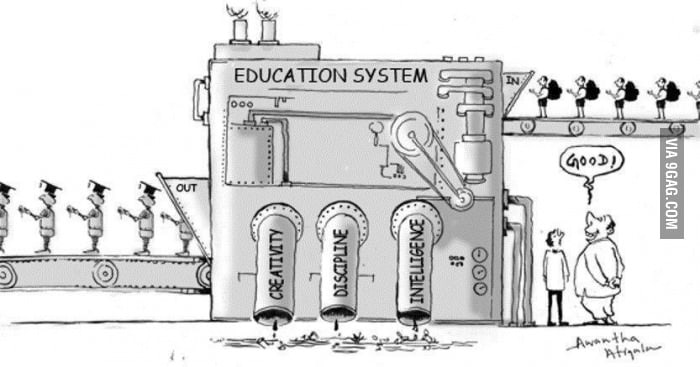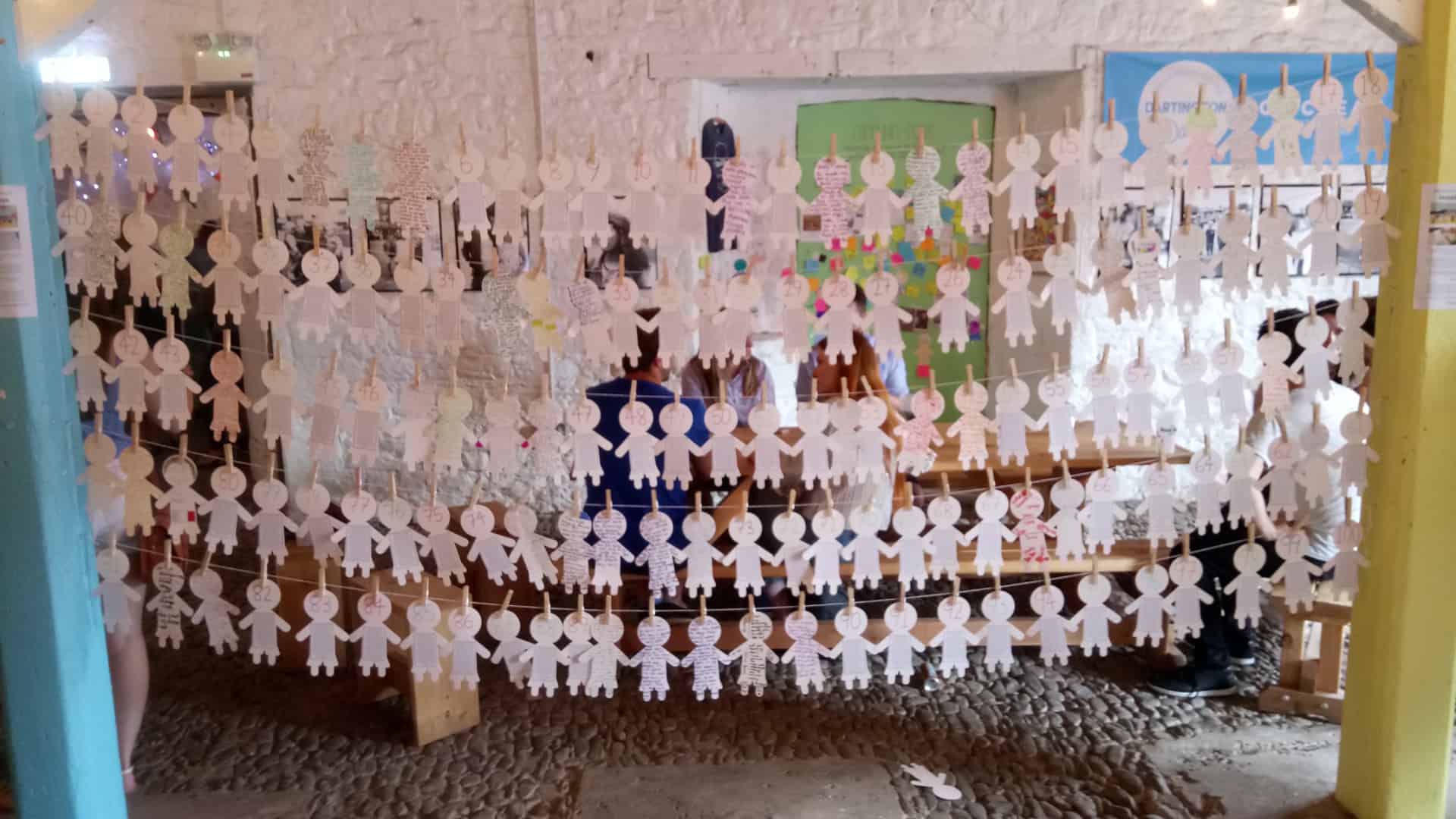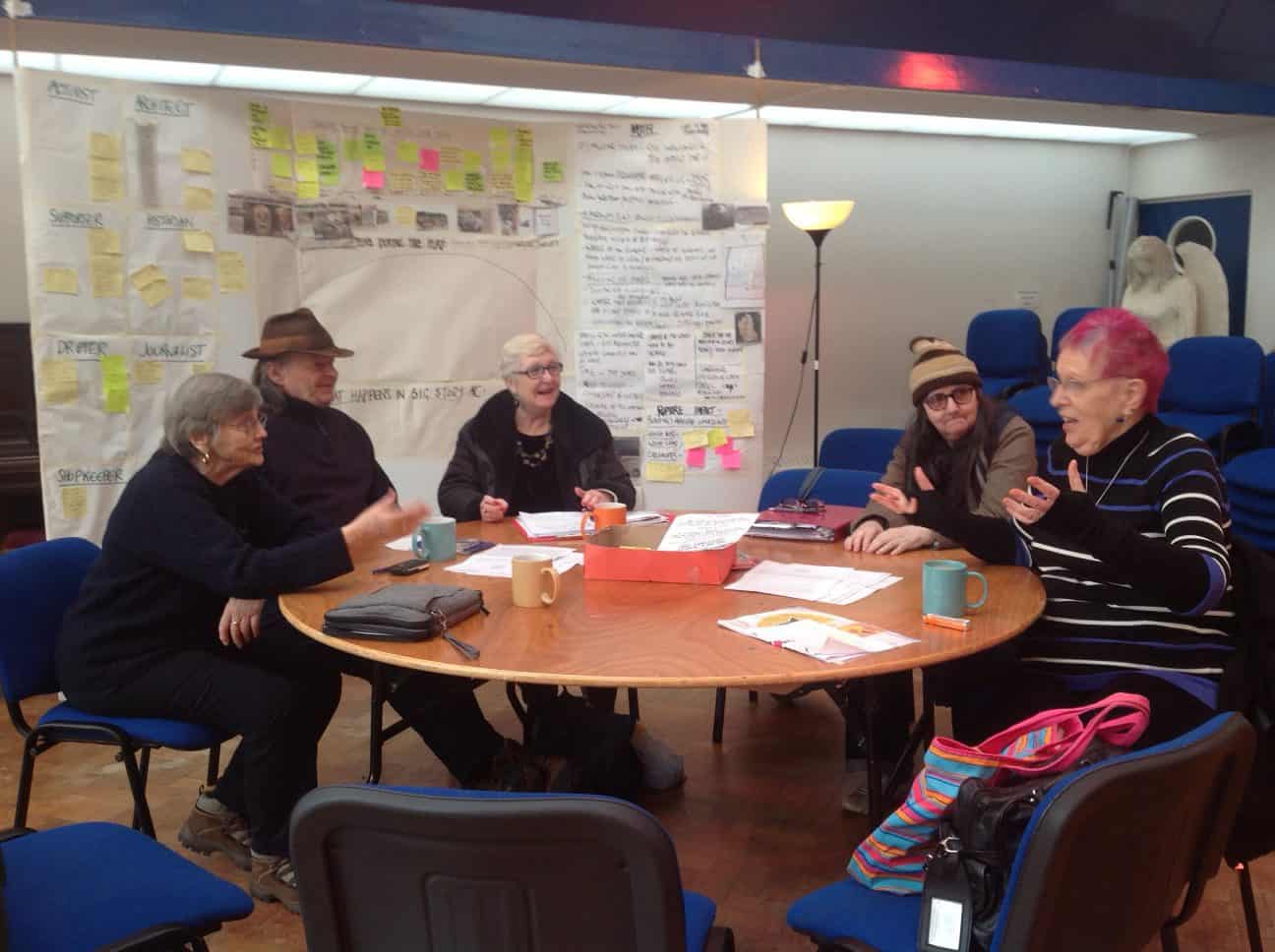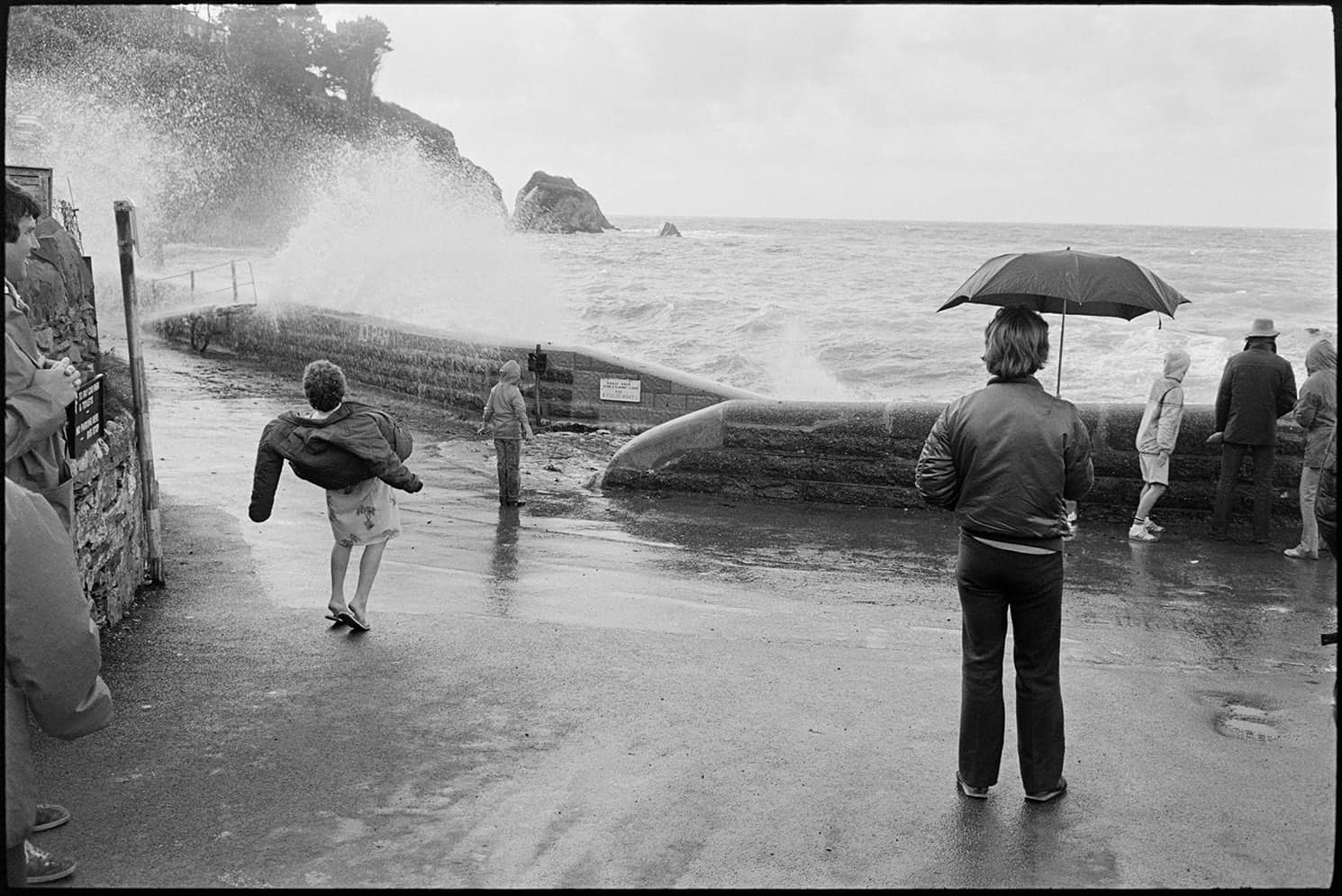(In the room for What Remains of Us R+D, June 2016 – photo by Barney Witts)
This is the first blog on my playwriting that I’ve written for nearly two years.
(I’d get a coffee if I were you).
Apart from dashing off Dialogue as Action and Using Metaphors to help publicise the London fringe production of Threads at the Hope Theatre last April, there’s been little time to catch my breath.
What’s been happening?
It’s been a busy couple of years with home life.
The kids have grown to three and five, with all the busyness that brings – and in the last eighteen months, my other half has been managing huge mental health problems. That’s brought new challenges and new learning for all of us.
But whilst I’ve been ploughing on with the playwriting and the dramaturgy in the meantime – either in real life or online – blogging has certainly been a long way down the list.
Time to reflect has become a luxury that only more time allows – and there’s barely been time to do the work, let alone take stock of it.
I’d forgotten how useful taking stock can be.
(A typical planning document mid-project in my playwriting)
A couple of years ago, reflecting after a major project genuinely helped solidify how I was thinking about myself, my writing and my approach to the industry.
I felt I’d learned how to totally bust the playwriting myths I’d bought into and also to redefine my playwriting identity and process in a truthful way.
It emboldened me by grounding my practice, energising my approach, and guiding me through projects with a super-clear set of values.
Two years later though, I feel a bit at sea again:
Philosophically (why): what’s the deep importance of writing performance, for me?
Practically (how): fewer projects are getting generated, or going through to production – how do I turn that around?
Economically (where): for the second summer running, I’m staring down the barrel of no paid work for the rest of the year – where is it? Did I miss the chance to make it?
Let’s take stock.
(This ends with some clear advice, I promise).
Two years ago I’d finished an ACE-funded R+D on a major project with an international focus, collaborating with director Sita Calvert-Ennals (above with performer David Tse) on a play exploring the incredible experiences of the temporary Korean Divided Family Reunions called What Remains of Us.
What followed was an 18-month bringing-together of a huge ACE funding bid for production, turned down in March this year and now being remade for re-submission.
The amount of energy and unpaid time all the team put in to write this bid was phenomenal. Other paid work was put back, late night Skypes and phone calls writing cashflows and budgets were had, and endless re-writing on Grantium was undertaken.
It was a huge effort.
I wrote a marketing strategy and audience development plan for a production with a budget of well over £100K.
I went way outside my comfort zone in being a lead contact for negotiating with venues and art centres.
I got stressed, I panicked, I got tired, but together, we got there in the end. We must have done about a month of unpaid work.
It’s a huge hit to then be turned down – though with good, clear and reasonable assessments from ACE, and a very supportive follow-up meeting about how to re-approach the application.
Fingers crossed for the next round.
Shortly after this R+D, I finished another one in October 2016.
As a Leverhulme Arts / Incubator Scholar at children’s theatre the egg in Bath, I was attempting a radical adaptation of George Orwell’s Animal Farm.
The idea was that the play would burst in on unsuspecting GCSE classes, rallying them into asking revolutionary questions about the how, why and what of the education system and its connection to global economics and domestic politics.
Classroom apparatus would be co-opted as theatre props, the room would be overturned, a seam of fundamental questioning could be prised open to help put young people in the driving seat of educational change.
It was an R+D of mis-starts and learning.
The script didn’t quite work, the adaptation felt forced, the overall idea of adapting a text that is already a strong allegory might have been mis-guided from the start – but the strong artistic question at the heart was ‘is this possible?’ – the answer being ‘not in this way, no’.
Whatever the other way is needs time and funding to work out.
From this R+D into another – a Writer-in-Residence post at Bristol University. Using the immense Theatre Collection of archives connected to the department I found inspiration for a new play.
(Students at Bristol University Theatre Department contributing to my R+D)
The resulting process, academic reflection and script was about pushing my practice forward – a multiple time-framed, theatrically ambitious, myth-and-politics-and-puppetry-influenced play, exploring human beings’ obsessions with origins.
Where do things begin, why do we need to know, and what happens when those answers are erased from history? It touched on fake news, immigration, the mystical world of puppets and probably more themes than it could handle.
It was a real joy to write.
The first draft from April 2017 is still awaiting a second go: a good couple of weeks’ work.
Again, time and funding…
The spring of 2017 saw the site-specific production of Invincible, a script I co-created with Kilter Theatre, BrisSynBio and the Centre for Public Engagement at Bristol University, exploring the boundaries of ethics in the development of synthetic biology.
We took over a flat and moved the audience into point-blank range on a promenade performance, following a family drama involving three generations of women.
Meeting with scientists, bio-ethicists, philosophers, researchers and performers, the team devised and then scripted the piece to simultaneously compel, educate and promote discussion.
Its success was confirmed by a re-mounting in March 2018, and a recent request from Trieste University in Italy for a translation of the script for international production.
There were other collaborations going on too.
Underscoring adventures in synthetic biology was a co-writing collaboration – my first attempt at such an endeavour – with director Rebecca Manson Jones and Just Jones &.
We Will Be Happy Here was an exploration of future cities, how they would be run, the limitations of happiness in the pursuit of equality, and the radical interventions art might make on politics.
It was a singing, dancing, poetic, bawdy, sincere and clowning theatrical world that had been shifting in response to world events since its inception in 2014.
Another major ACE bid for production was created, submitted – and turned down. The ideas and characters in the play may live on now in new ventures under Rebecca’s solo guidance.
The final form of my own writing seems to have been evolving as well.
Last summer the pop-up Boat Shed Theatre in Exeter invited me to undertake what began as an audience consultation project, asking the three closest council wards to the temporary venue on Exeter Quay what their perfect arts venue might look like.
(West of the Exe – a temporary community of over 100 paper people)
This became my first text installation project, comprised of verbatim comments from the interviews and workshops I carried out with over 130 people in local schools and community groups, and began lasting conversations about place, identity and culture.
Talking to communities rooted in specific places unwittingly informed the next two plays.
Running on parallel lines – and almost parallel processes – between September 2017 and July 2018 has been the development of The Redcliffe Rapture and Hefted.
(Yvonne, Di and Rose from the newly-formed Redcliffe Community Collective)
The Redcliffe Rapture, commissioned by PECO Theatre’s Rachel Aspinwall, funded by HLF and made with collaborator Tom Price from AV experts Limbic Cinema had a firm basis in oral histories – over 40 interviews with residents connected to the Bristol area of Redcliffe.
These tales were gathered via a Story Collecting Project, alongside the co-devising of a new play with around twelve amateur and mostly total beginner performers.
All over sixty years old, and half of them with disabilities, they formed a new community company in Redcliffe specifically for the project, and learned theatre, devising and writing skills.
They helped collaborate in the creation of a site-specific script and an accompanying audio-visual spectacle. The first draft of the script and AV work was shared at the end of June.
A full production is the aim, so of course, the next funding bid is in its early stages…
Hefted was commissioned by Beaford Arts in North Devon via a successful ACE grant of my own, funding from Beaford, and all connected to their own HLF-funded project Hidden Histories.
Beaford is in possession of a glorious archive of black and white photos documenting rural life in North Devon by the photographers James Ravilious and Roger Deakins.
Hidden Histories aimed to better connect communities with this unique heritage collection via arts projects in communities.
We also wanted to explore what it meant to embed a playwright in a rural context to create a new play for those communities, and how the script might have potential for multiple production platforms – live, audio, podcast, site-specific – a multi-purpose text, that could reach more people than just one touring theatre production.
My own question was what really connected human beings to the unique landscape of North Devon. It’s a region that is one of only six UK UNESCO Biosphere Reserves and therefore carries a designation putting it at the same level as 669 other global conservation sites.
Hefted is a 600-year story cycle across nine scenes exploring that question.
(The spectacular Hartland Quay in North West Devon)
It was publicly performed as a script-in-hand reading in Swimbridge at the beginning of July, with support from North Devon’s multi story theatre, and should see its premiere this winter as a co-production between a community and professional cast.
I also spent some of the last month or so re-writing my 2012 play for young companies I Am England for a new production in Leeds, through the inspiring programme Leeds Actors in Training. It’s the third new production in as many years for the play.
However, the original Brexit-predicting themes of six years ago sang against a very different context.
This version’s chorus of teenagers needed to be riotous, informed, politicised and active – a far cry from the distance and apathy described by some of the piece’s original teenage collaborators back in 2011.
(Performer Adan Osborne as Marc in I Am England, 2018)
How times have changed.
Finally, on the horizon, and moving into the future at last – my third commission from Half Moon for teenage audiences – Off The Grid – sets off on a small UK tour this winter, starting with a week in London in November, before ten dates to regional venues.
Phew.
To come full circle on the reason behind marking out that journey, it was about the why, how and where (is the income) of playwriting for me now.
It feels frustrating in particular that this last obstacle – the economic problem – is so pressing, especially when the projects above sound so successful. You’d think I was rolling in commissioning money.
Yes my weekly subscription information list for playwrights, Lane’s List slowly builds subscribers, and the Playpens one-to-one dramaturgy sessions come in a couple of times a month too, and that’s great.
The real picture however is these bigger projects above take a long time to generate.
Some haven’t come to fruition, none has pay attached to them for the planning or writing of funding bids (successful or not) and they’re not all full commissions. None of that is anyone’s fault either – and every single collaborative partner above has invested in me, my writing, and trusted me with the unknown.
The projects have been pursued with shared interest and mutual excitement. I think the main thing is that the projects are hugely spread out over two years – and sometimes the unknown aspect means more work is done than anticipated – and this simply thins out the income.
But what are the patterns connecting this activity?
The ‘why’ section below is obviously subjective, but it’s in the ‘how’ and the ‘where’ that I think there’s general advice reflecting the theatre ecology now, and how as independent writers we might be thinking about sustaining our careers.
The WHY – what’s important to me
Telling stories of place and community to express our identity – future cities, rural landscapes, neglected or disconnected urban areas
Asking fundamental questions about what makes us human – synthetic biology, our connection with nature, how families carry whole worlds within them
History, politics and the future – how the past, present and future are connected to our deepest-held values, and what happens when they’re put under strain
The poetic and metaphorical – heightening situation, story and structure to express what is inexpressible in a literal world
The HOW – generating work
Partners, collaborations and infrastructure – beginning work with other artists, venues and groups, often beyond the realm of theatre, but within a supported context
Sharing a question – knowing what is being explored, and that it’s a shared endeavour not necessarily about finding an answer
Using research and testimonies – how individual stories feed into bigger story networks
Getting in the field – photographs, interviews, on-location visits, embedding and immersing in my subject matter
The WHERE – generating income
Long–term planning – sowing seeds of ideas and connections early and keeping them watered and nourished
Relationships – making them, maintaining them, seeking them out continuously
Visibility – having activity noticed, discussed, taken on to the next level
Learning – what gets funded, what doesn’t and why
Diversifying – applying skills to new areas (audience development, oral history gathering, academic practice-as-research)
You’ve probably all gone away by now.
I’m still here though, and I’m being totally unapologetic about the length of this blog. Two years is a long time, and sometimes it’s worth trudging through the whole to make sense of it – and in some small way, maybe its useful for you too.
Though you’ve probably flicked over to Wimbledon.
If you haven’t, thanks for staying and listening.
There’ll be more (and more focused) blogs to come very soon.
Onwards.
(Mark Wallace of Beaford Arts and Emily Williams, Freelance Producer, on Crow Point in North Devon. This is how to do a script feedback meeting)
Enjoy this blog? You can get more insights and receive weekly updates on competitions, awards, submission opportunities, jobs, training and workshops by signing up to Lane’s List – every Thursday, 50 weeks a year, to your inbox.














